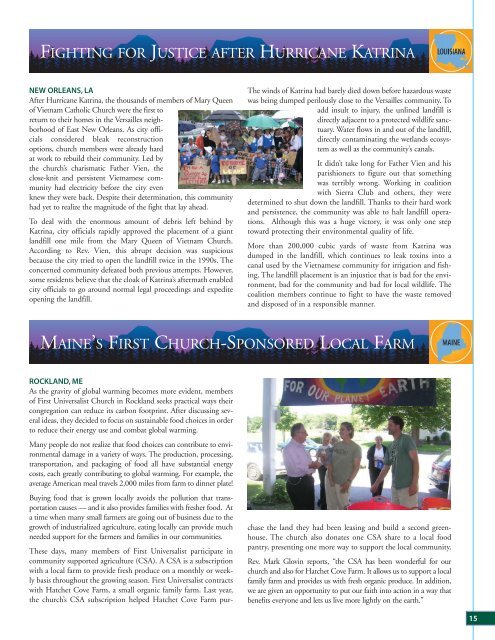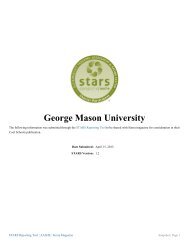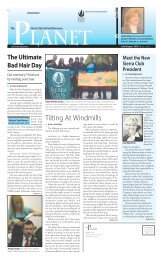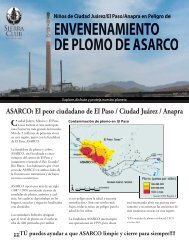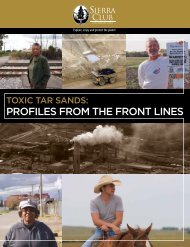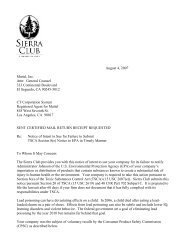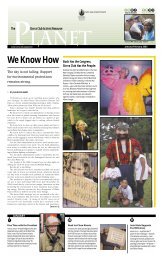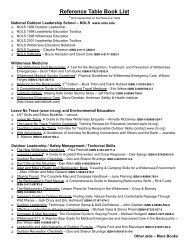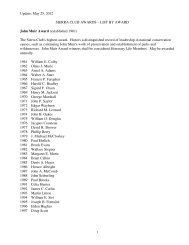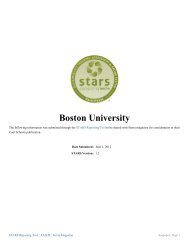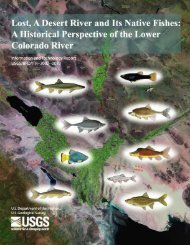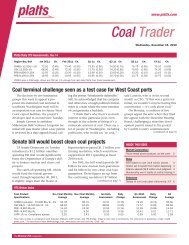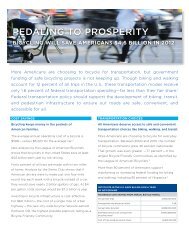FAITH IN ACTION - Sierra Club
FAITH IN ACTION - Sierra Club
FAITH IN ACTION - Sierra Club
You also want an ePaper? Increase the reach of your titles
YUMPU automatically turns print PDFs into web optimized ePapers that Google loves.
FIGHT<strong>IN</strong>G FOR JUSTICE AFTER HURRICANE KATR<strong>IN</strong>A<br />
NEW ORLEANS, LA<br />
After Hurricane Katrina, the thousands of members of Mary Queen<br />
of Vietnam Catholic Church were the first to<br />
return to their homes in the Versailles neighborhood<br />
of East New Orleans. As city officials<br />
considered bleak reconstruction<br />
options, church members were already hard<br />
at work to rebuild their community. Led by<br />
the church’s charismatic Father Vien, the<br />
close-knit and persistent Vietnamese community<br />
had electricity before the city even<br />
knew they were back. Despite their determination, this community<br />
had yet to realize the magnitude of the fight that lay ahead.<br />
To deal with the enormous amount of debris left behind by<br />
Katrina, city officials rapidly approved the placement of a giant<br />
landfill one mile from the Mary Queen of Vietnam Church.<br />
According to Rev. Vien, this abrupt decision was suspicious<br />
because the city tried to open the landfill twice in the 1990s. The<br />
concerned community defeated both previous attempts. However,<br />
some residents believe that the cloak of Katrina’s aftermath enabled<br />
city officials to go around normal legal proceedings and expedite<br />
opening the landfill.<br />
MA<strong>IN</strong>E’S FIRST CHURCH-SPONSORED LOCAL FARM<br />
ROCKLAND, ME<br />
As the gravity of global warming becomes more evident, members<br />
of First Universalist Church in Rockland seeks practical ways their<br />
congregation can reduce its carbon footprint. After discussing several<br />
ideas, they decided to focus on sustainable food choices in order<br />
to reduce their energy use and combat global warming.<br />
Many people do not realize that food choices can contribute to environmental<br />
damage in a variety of ways. The production, processing,<br />
transportation, and packaging of food all have substantial energy<br />
costs, each greatly contributing to global warming. For example, the<br />
average American meal travels 2,000 miles from farm to dinner plate!<br />
Buying food that is grown locally avoids the pollution that transportation<br />
causes — and it also provides families with fresher food. At<br />
a time when many small farmers are going out of business due to the<br />
growth of industrialized agriculture, eating locally can provide much<br />
needed support for the farmers and families in our communities.<br />
These days, many members of First Universalist participate in<br />
community supported agriculture (CSA). A CSA is a subscription<br />
with a local farm to provide fresh produce on a monthly or weekly<br />
basis throughout the growing season. First Universalist contracts<br />
with Hatchet Cove Farm, a small organic family farm. Last year,<br />
the church’s CSA subscription helped Hatchet Cove Farm pur-<br />
The winds of Katrina had barely died down before hazardous waste<br />
was being dumped perilously close to the Versailles community. To<br />
add insult to injury, the unlined landfill is<br />
directly adjacent to a protected wildlife sanctuary.<br />
Water flows in and out of the landfill,<br />
directly contaminating the wetlands ecosystem<br />
as well as the community’s canals.<br />
It didn’t take long for Father Vien and his<br />
parishioners to figure out that something<br />
was terribly wrong. Working in coalition<br />
with <strong>Sierra</strong> <strong>Club</strong> and others, they were<br />
determined to shut down the landfill. Thanks to their hard work<br />
and persistence, the community was able to halt landfill operations.<br />
Although this was a huge victory, it was only one step<br />
toward protecting their environmental quality of life.<br />
More than 200,000 cubic yards of waste from Katrina was<br />
dumped in the landfill, which continues to leak toxins into a<br />
canal used by the Vietnamese community for irrigation and fishing.<br />
The landfill placement is an injustice that is bad for the environment,<br />
bad for the community and bad for local wildlife. The<br />
coalition members continue to fight to have the waste removed<br />
and disposed of in a responsible manner.<br />
chase the land they had been leasing and build a second greenhouse.<br />
The church also donates one CSA share to a local food<br />
pantry, presenting one more way to support the local community.<br />
Rev. Mark Glovin reports, “the CSA has been wonderful for our<br />
church and also for Hatchet Cove Farm. It allows us to support a local<br />
family farm and provides us with fresh organic produce. In addition,<br />
we are given an opportunity to put our faith into action in a way that<br />
benefits everyone and lets us live more lightly on the earth.”<br />
15


